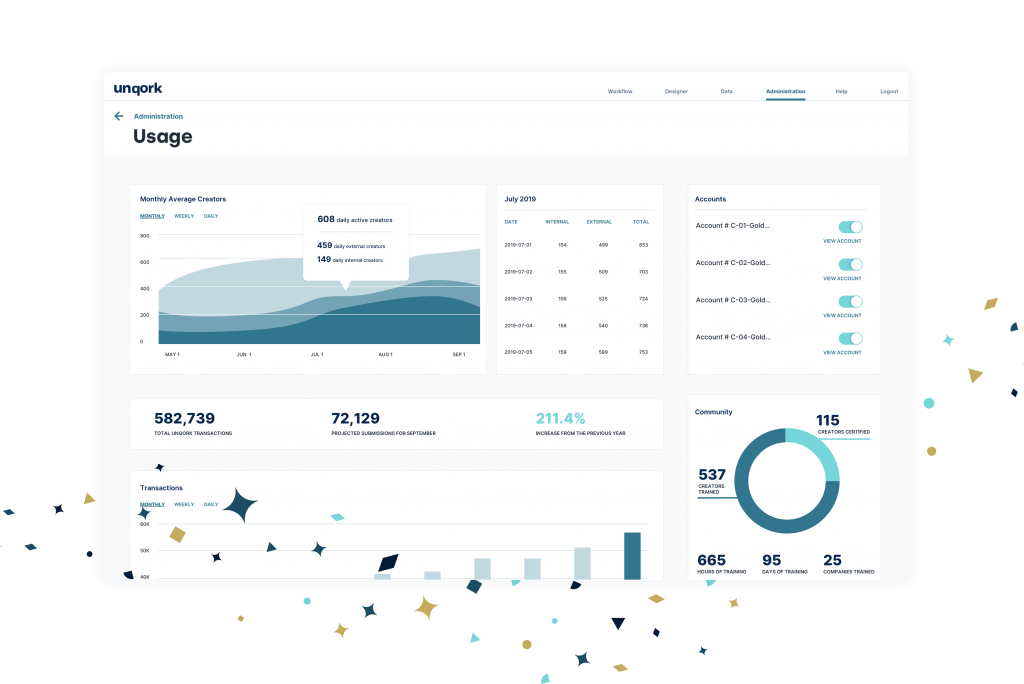How No-Code Can Unburden the Developer and Unleash Potential (interview)
Many people think of consumer-grade applications when no-code tools are mentioned: drag-and-drop website building, or even a basic virtual Rolodex drawn from a database of contacts. What’s less known is that the latest generation of no-code applications are in everyday use, building enterprise-grade apps, leveraged by DevOps as part of larger development toolsets.
The scope and capabilities of no-code have evolved with the development of complex and sophisticated enterprise-grade apps that can integrate with multiple other elements of the IT stack in complex enterprise environments.
What is no-code? It is an alternative to traditional software development that allows developers to build full-fledged applications without writing any code. It empowers skilled users to take app and software development into a higher gear, removing a great deal of manual coding and with it, many of the obstacles and bugs that tend to slow progress.
The industry pioneer in the no-code for the enterprise is Unqork. Started in 2017, it received a $2-billion valuation in its third year and has raised a total of US$414 million in funding to date. A mind-blowing feat considering how its founder and CEO, Gary Hoberman, kept getting rejected for being too old (he was 45) when he first went out to raise funding for his startup.
“Unqork isn’t just a new tool in the developer’s tool bag — it replaces the whole workshop,” Hoberman explained. “Unqork turns developers into a 10x engineer, able to accelerate the delivery of high-quality, mission-critical applications at a fraction of the cost to the enterprise.”
Users can drag-and-drop different pre-built components to create their apps through a simple visual interface. Just assemble the parts required without having to code each of them from scratch. Unqork is like Legos for building software, but with large enterprises in mind.
“Unqork was designed for enterprises in highly regulated industries: insurance, financial services, healthcare and government. Our leadership team hails from these very industries, so we have a deep understanding of what our customers need and what industry processes aren’t working,” Hoberman said, “We aren’t just another Silicon Valley startup trying to bring digital transformation to industries that we don’t understand.”
And it shows. Its clients range from Liberty Mutual and Maimonides Medical Center to public sector customers like Chicago and Washington, DC. Some clients even became its investors, like Goldman Sachs. Unqork’s work with jurisdictions like Chicago on Covid-19 relief efforts has demonstrated no-code’s ability to deliver effective custom apps quickly.
The intuitive, zero coding nature of the platform makes designing and building apps accessible to those with no experience. However, its primary goal is to release DevOps teams from being swamped by legacy coding bugs and clutter, giving them more space and opportunity to experiment with their craft and create new solutions to add more value to their organizations.
“We built Unqork for software engineers, for DevOps, for IT teams. It is all about making their lives easier by eliminating the need for writing and rewriting monotonous code,” Hoberman said.

Source: Unqork
“Using Unqork’s library of configurable components, developers can do in a single week what would take months with coding. They can then redirect all of the time they were previously spending on repetitive, monotonous tasks, and focus on developing innovative solutions to complex problems.”
The demand for no-code and low-code application development is expected to expand. The global no- and low-code market is anticipated to grow from US$2.34 billion in 2017 to US$27.23 billion in 2022. Enterprise organizations spend US$500 billion a year on coding software alone. For no-coding platforms like Unqork, which can develop apps three times faster than the traditional way, with 600 times fewer bugs and at a third of the cost, there is plenty of room for the niche to grow and prosper.
Hoberman observed: “As the only no-code platform that can support the complexity, scale and security required for enterprise applications, Unqork is appealing to visionary technology leaders that are looking to eliminate legacy code from their organizations, looking to free their software engineers up to create new solutions.
“I expect that Unqork will increasingly become the go-to platform for the next generation of enterprise engineers and will be one of the most in-demand skills for developers.”
To learn more about Unqork, we suggest exploring the platform’s video webinars and showcases and registering for a personal demonstration of this highly able way to spin up applications.
For additional information, do read Dispersing the No-Code Myths with Unqork’s Enterprise-Grade Platform.









